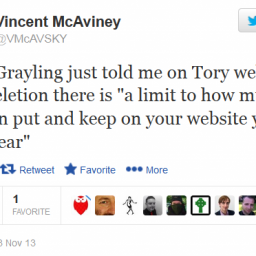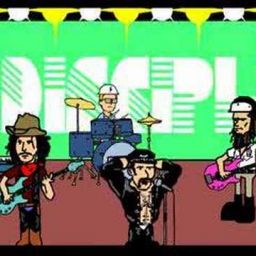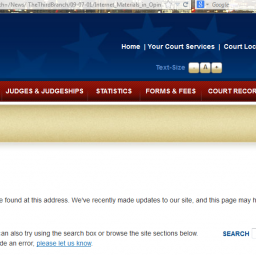by Raizel Liebler
What would you think about if there was a useful and arguably essential source of information from the top level of one of the three branches of government presently available to the public — and someone now wants to lock it away if he doesn’t get a payday?
This situation is presently occurring with Jerry Goldman, the founder of the Oyez Project, seeking to sell it. For $1 million dollars. The Oyez Project, presently hosted at Chicago-Kent College of Law, is an unofficial online audio archive of the Supreme Court of the United States, with cases back to 1955. According to a 2013 NPR story, “the digital recordings archive began in the early 1990s from a simple idea: to give the public access to unabridged Supreme Court recordings.”
Why doesn’t the Supreme Court host this content itself — on its own website where it can be the authoritative source for information on the Supreme Court?
Answer: Because Supreme Court. The Supreme Court only this term started adding captured versions of cited internet sources. The Supreme Court still does not self-archive filed briefs, meaning that to fully research historical cases, one needs to use paid services. They only have oral arguments back to 2010 on their own site — and it only is listed by case, not by keywords.
Did the founder do all the work himself, ala Little Red Hen? How much does this even cost a year?
According to Jess Bravin’s detailed article in the Wall Street Journal, “The project, which has two full-time staff members and several student employees, costs between $300,000 and $500,000 annually to operate.” And the “Oyez Project [was] developed with the assistance of many minds—Mr. Goldman doesn’t write the computer code himself.” And even the Oyez site lists the efforts of present staff and those that have previously worked on the project, including many Northwestern undergrads.
The time and effort to make these materials available, including adding of some metadata and keywords, plus hosting costs, isn’t free. But that doesn’t mean that the materials themselves should be locked up, behind a paywall.

But what do the funding sources that made this service available think about this quasi-takeback?
Yes, what do all the funding agencies, including the National Science Foundation, the National Endowment for the Arts, and the Knight Foundation think? We don’t know, but considering the summary of the Knight Foundation grant page for the project mentions the words open, free, and access all over, I look forward to their views on the potential sale of materials that, to quote the Knight Foundation page, will be “release[d] under a Creative Commons license and [made] available online.”
Is there copyright in “sweat of the brow” issues — like someone put in effort to create something? Or copyright in the created database? Or for federal government works?
No and no and no. Copyright in the U.S. is based on output — and doesn’t attach to arrangement of materials in a database.
There isn’t copyright in federal government works — and arguably all of the public-facing work the Supreme Court does when it is doing its job is government work-product, and thereby a federal government work. (But stuff created elsewhere still belongs to the Justices, such as the books written by Justices Scalia, etc.)
Can’t another library just host the content?
Harvard Law School has offered to pick up the operating cost. As the WSJ article quotes Jonathan Zittrain, vice dean for library and information resources at Harvard Law School Library:
“The Harvard Law School Library, and no doubt others, would welcome a chance to steward something as extraordinary as Oyez…
“Work like that done through the university is for the public’s benefit–and the faculty who inspire and guide our projects do not claim ownership in the results, nor reap a financial windfall when the projects catch fire. We’ve explored with some peer schools taking on Oyez in that spirit…
This can’t be the only Supreme Court related database or similar that is online. Are the other ones freely available?
The Supreme Court Database, popularly known as the Spaeth Database, is “the definitive source for researchers, students, journalists, and citizens interested in the U.S. Supreme Court.” I’ve used it for my own Supreme Court research, as a foundation to avoid coding errors.
The Spaeth database is brought to you by the National Science Foundation and is Creative Commons licensed, requiring attribution and non-commercial use. And here is the history of the database — and the list of contributors.
If the Supreme Court oral arguments are at least arguably in the public domain as government works what’s to stop someone else from redoing this oral argument project?
This project did take lots of time, but go ahead, start from the beginning. Good luck!

Yes, interestingly, The Oyez Project does use a Creative Commons Attribution-NonCommercial 4.0 International License.





hm. i think harvard should just scrape it.